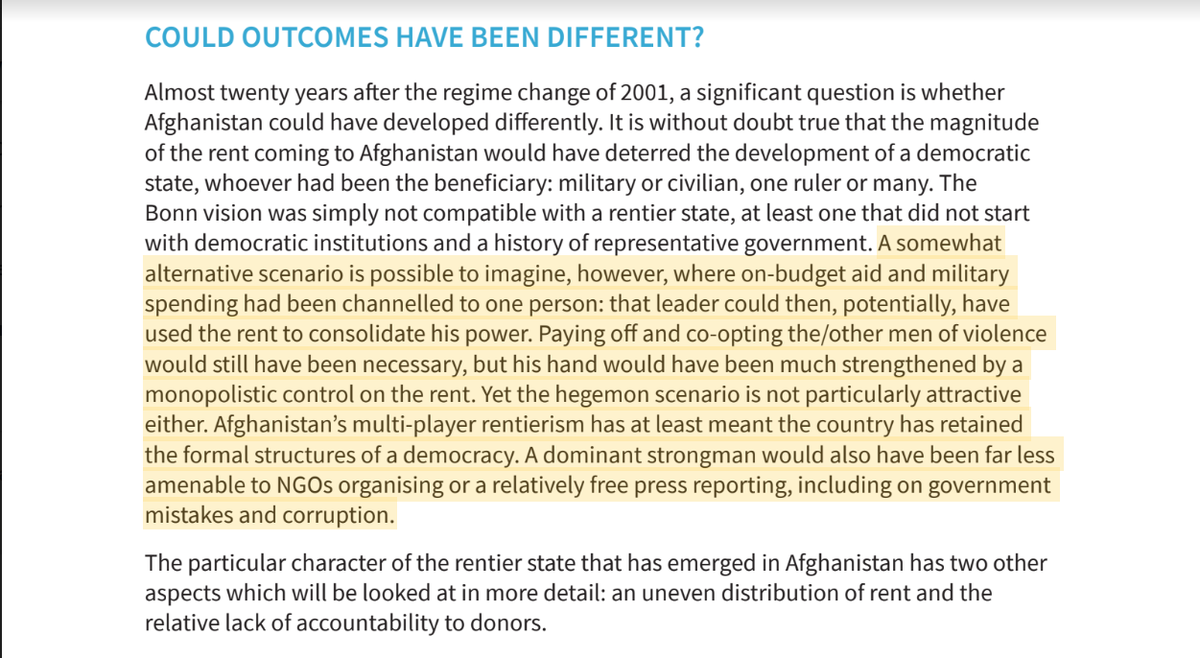An interesting point that needs further clarification and elaboration.
Short answer: No. https://twitter.com/asfandyarmir/status/1285792833295663104
Short answer: No. https://twitter.com/asfandyarmir/status/1285792833295663104
I should point out that the crux of this argument is to do with 'defunding' the state to root out deep-seated issues such as corruption and citizen disillusionment with the state - a solution that is both ambitious and original in scope and not much there to disagree with.
However, the article also, obitur dictum, states that more decentralised democratic mechanisms could have prevented these foundational issues and increased trust in the state.
This part raises several interesting questions.
This part raises several interesting questions.
The influx of aid and the way it was distributed
a) undermined the legitimacy and authority of the state as it broke state monopoly on certain resources required for state sovereignty; and
a) undermined the legitimacy and authority of the state as it broke state monopoly on certain resources required for state sovereignty; and
b) created local (spatially or structurally) institutions/powerbases that were not funded by public or responsible to them.
This undermined the writ of the state and prevented the formation of democratic mechanisms.
This undermined the writ of the state and prevented the formation of democratic mechanisms.
From this perspective, would decentralisation (in post-2001 setting) have promoted democratic mechanisms and trust in the state or would it have strengthened the local powerbases and further relegated the state to one of many actors performing the functions reserved for a state?
To add a caveat: the question is limited to the context of post-Bonn political order with dependency on aid exacerbating local power cleavages that were the vestiges of a war where divergent actors coalesced around the need to resist a Taliban hell-bent on taking entire country.

 Read on Twitter
Read on Twitter


